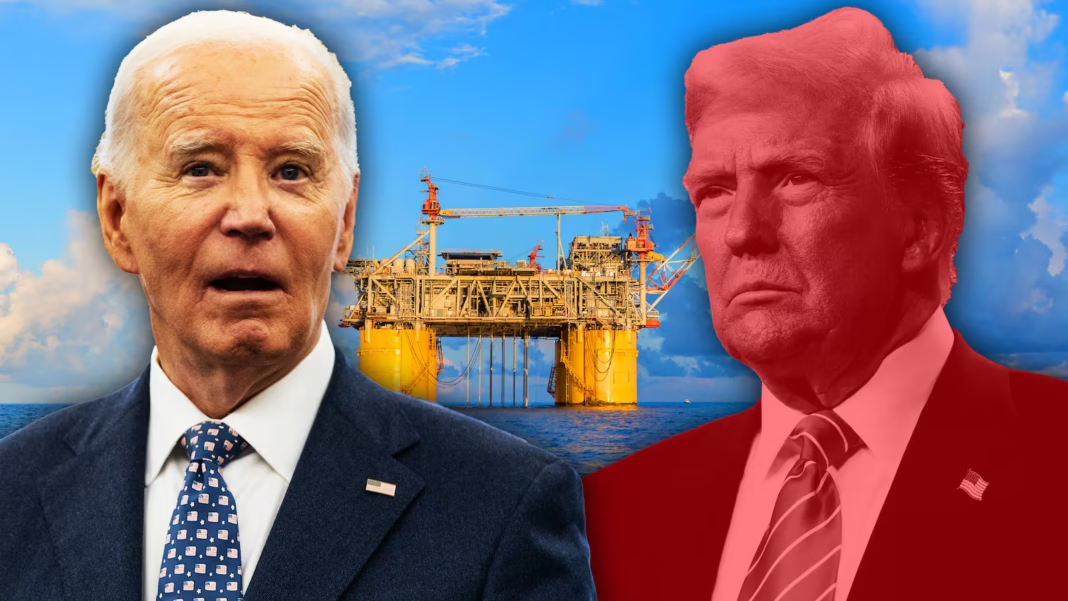In a move that has sparked political tension, President Joe Biden has invoked the 1953 Outer Continental Shelf Lands Act (OCSLA) to prevent new oil and gas drilling on over 625 million acres of U.S. offshore areas. The decision covers crucial regions, including the East and West coasts, the Eastern Gulf of Mexico, and Alaska’s North Bering Sea, effectively putting a roadblock in place for future fossil fuel developments.
This action is significant as it may create hurdles for President-elect Donald Trump, who has long advocated for expanding drilling and energy production. Trump’s team, especially his incoming press secretary Karoline Leavitt, has strongly criticized the move, calling it a politically motivated attempt by Biden to obstruct Trump’s energy agenda and lower gas prices for American families.
Biden, on the other hand, framed the decision as a necessary measure to safeguard the environment, citing the risks of irreversible damage to vulnerable coastal areas. With growing concerns over climate change and its effects on communities, Biden emphasized that protecting these regions for future generations aligns with the country’s transition to a clean energy economy. The administration argued that current energy needs can be met without further exploration in these sensitive areas.
Biden’s move has received backlash from the oil and gas sector. Mike Sommers, president of the American Petroleum Institute, called the decision “politically motivated,” urging Congress and the incoming administration to reverse it. However, Biden’s action, invoking a law that has no clear provision for reversal, puts Trump in a challenging position, potentially requiring legislative action to undo the ban.
This bold environmental policy is just one of many steps in Biden’s broader effort to steer the U.S. towards more sustainable energy practices while challenging the priorities of the incoming Trump administration.


